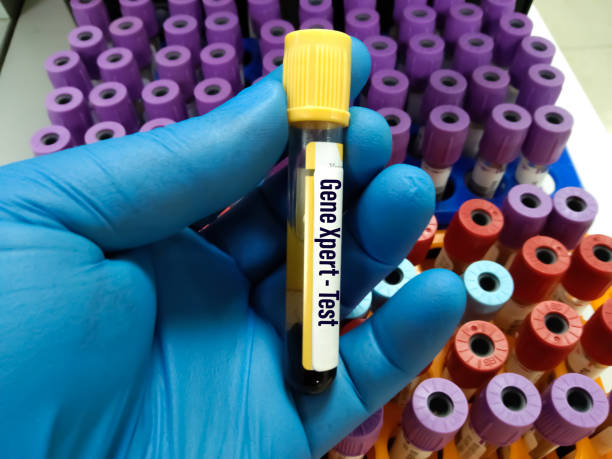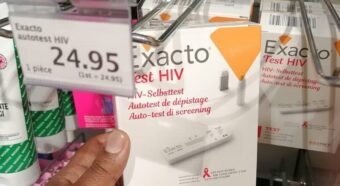The African Constituency Bureau Discusses with TB High Burden Countries the Global Fund Disease Split and The TB Fight
- September 25, 2021
- Conference
- By Armelle Nyobe
- Read in French

By Christelle Muvunyi
The ACB has engaged in technical discussions with country implementers and CCMs of six countries with high burden of TB, HIV/TB and MDR-TB in Africa burden countries to better understand their situation and potential solutions on how to reduce TB burden without affecting malaria and HIV programs negatively. Countries involved in these discussions that were held virtually on 26th August 2021 are [1]Kenya, Nigeria, Sierra Leone, Tanzania, Zimbabwe and South Africa. The input of these countries and other ongoing consultations will help determine a position that reflects the possible variety of situations across the 46 countries of both our ESA and WCA constituencies.
This series of discussions follows the increased awareness that “Stop TB” has raised on the importance of Tuberculosis burden across the world and the high rate of TB fatality. Although fewer people have TB than HIV or Malaria, a higher proportion of people die of TB than of the other two diseases. In the Global Fund partnership, that awareness has translated into a strong push to increase funding for TB and a reduction of the allocation for HIV and Malaria.
Sub-Saharan Africa accounts for 72% of the global burden of HIV and 94% of the global burden of Malaria[2]. The Global Fund’s global disease split for the HIV, TB and Malaria are respectively 50, 18 and 32 % respectively. Also, the Global Fund resources allocation depends on the diseases burden and the gross national income of the country. Thus, Africa currently receives about two-third of the Global Fund resources. An increase of TB funding from a change in the disease split, will technically mean less money for HIV and Malaria programs with associated disruptions to highly commoditized grants and also less funds for Africa.
Thus, it will be important for countries to use the flexibility afforded by the Global Fund policies to change the disease split in countries and raise the efficiency of the expenditures of the grants.
Among people living or affected with TB, 24% are in Africa. People living with HIV are 18 times more likely to contract TB according to (it is in the narrative of the GF Strategy).
More than one third of the estimated TB cases remain undetected in the community; Access to TB diagnostic service is extremely limited, low access to Gene Xpert test is very low & Sub-optimal referral linkage for TB diagnosis[3];Diagnosis among children is even lower with less than 10% of notified TB cases being children whereas epidemiologically, this should be higher[4];
Limited decentralized capacity to monitor program implementation at facility and community level; Compounding this issue further is the high malnutrition among TB patients whereby an estimated 46% of TB patients are reported to be malnourished at the start of treatment thus impacting negatively on treatment outcomes;
Management of Drug Resistant TB (DR-TB) is still centralized; Stigma among patients and health workers; Shortage of trained personnel to provide TB services and inadequate staffing at the National TB reference Lab; TPT (TB Preventive Therapy) uptake for under 5 children has slowed down with very low coverage of estimated targets to be reached;
Recent review by WHO indicated that high burden countries have not met their targets on TB notification, treatment success rate and childhood TB for the last 5 years, worst again among children; Impact of covid-19 on TB diagnosis,[5] notifications, management and HIV and Malaria.
Country teams shared that TB incidence and mortality are still high and TB mortality among PLHIV is equally high. They explained that there is still low case TB detection especially among key and vulnerable population such as mine workers, PWID, PLHIV and comorbidities such as diabetes and COPD and also among fishing communities; and that between 40-47% of people with TB are still missing; for example, Sierra Leone has 40% of the TB missing cases.
Several countries reported that TB diagnostic network is too weak with limited resources to cover unfunded quality demand interventions especially on pediatric and TB/HIV. Others recommended that the GF still needs to address issues related to civil rights and gender (CRG) responses in order to facilitate its implementation including reduction of stigma among TB patients.
The meeting participants acknowledged the need for increased funding for TB interventions in order to reduce death rates and increase case notifications. They also highlighted the need of not interrupting funding to HIV and Malaria so as to sustain gains already attained so far.
Moreover, there is need to increase investments in TB diagnostic network by deploying newer technologies to improve coverage and scale digital x-rays and artificial [6]intelligence could improve case detection for early TB case detection and management among KVP, which will contribute in reduction of mortality and morbidities.
Other major focus areas would be to prioritize interventions such as engagement of communities, private sector, Accredited Drug Dispensing Outlet (ADDO) would help to improve case detection.[7] Investing in surveillance systems to timely collect TB data along with the diagnosis – treatment from screening to completion of treatment also needs a special focus on as well as reaching unreached population through expanding TB services by deployment of mobile TB clinics and use of accredited drug dispensing outlets and to increase TB cases. The meeting insisted on finding and treat more people in order to reduce TB incidence and mortality as well as find and treat more PLHIV in order to reduce mortality among PLHIV.
Countries shared that average TB grant absorbed was >95% in all years of this 2017-2020 grant and recommended that the GF should instead consider additional funds raising for this course[8] and funds should not unnecessarily leave HIV and malaria grants for TB grants. Otherwise, if there is no increase of funding for TB, the struggle of reducing high deaths associated with this disease and sustain the gains made in the fight against HIV and Malaria will be real.
Currently, countries receive grant allocations letters with a secretariat suggestion for the split among the three diseases. The Nigeria CCM permanent secretary explained that the CCMs have the authority to adjust this suggested funding split. He further indicated that using this flexibility, Nigeria funded a separate grant to reinforce its health system. He encouraged countries to use this flexibility to change the split in their countries following their epidemiology and their country context.[9] Thus, they can increase the proposed funding for TB without a Global Fund adjustment to global disease split. The ACB will continue engaging country implementers and CCMs on how to better fund TB without jeopardizing the gains of HIV and malaria[10]. For instance, is it possible to gain efficiency in the TB programs in and out of Africa? As the Global Fund discusses this disease split, it remains important not to take funds away from countries with the least ability to pay towards those with higher ability to pay
[1] Six countries with high burden of TB, HIV/TB and MDR-TB in Africa; Kenya, Nigeria, Sierra Leone, Tanzania, Zimbabwe and South Africa.
[2] Sub-Saharan Africa accounts for 72% of the global burden of HIV and 94% of the global burden of Malaria.
[3] Access to TB diagnostic service is extremely limited, low access to Gene Xpert test is very low & Sub-optimal referral linkage for TB diagnosis;
[4] Diagnosis among children is even lower with less than 10% of notified TB cases being children whereas epidemiologically, this should be higher;
[5] Impact of covid-19 on TB diagnosis, notifications, management and HIV and Malaria.
[6] there is need to increase investments in TB diagnostic network by deploying newer technologies to improve coverage and scale digital x-rays and artificial intelligence
[7] major focus areas would be to prioritize interventions such as engagement of communities, private sector, Accredited Drug Dispensing Outlet (ADDO) would help to improve case detection.
[8] TB grant absorbed was >95% in all years of this 2017-2020 grant and recommended that the GF should instead consider additional funds raising for this course
[9] The Nigeria CCM permanent secretary explained that the CCMs have the authority to adjust this suggested funding split. He further indicated that using this flexibility, Nigeria funded a separate grant to reinforce its health system. He encouraged countries to use this flexibility to change the split in their countries following their epidemiology and their country context.
[10]The ACB will continue engaging country implementers and CCMs on how to better fund TB without jeopardizing the gains of HIV and malaria


